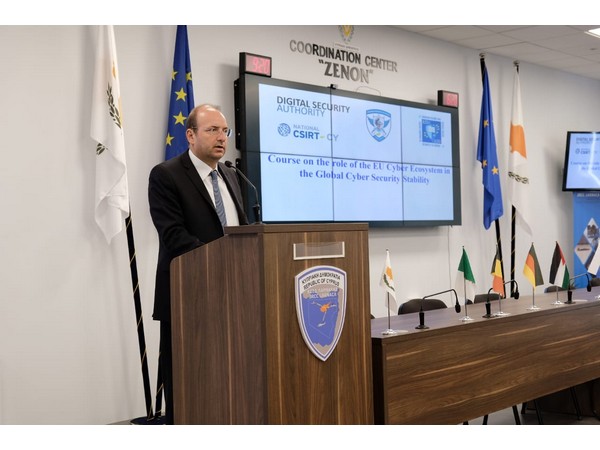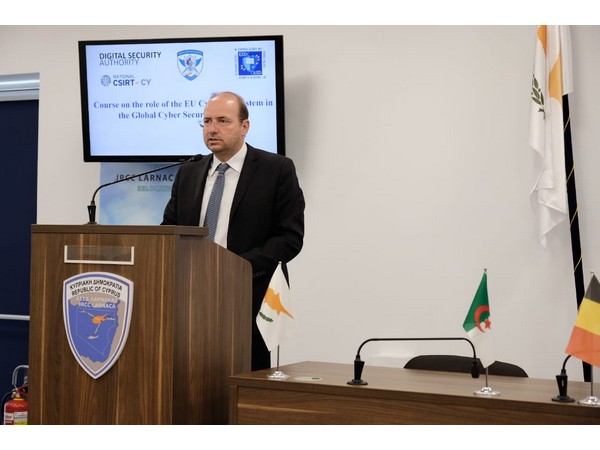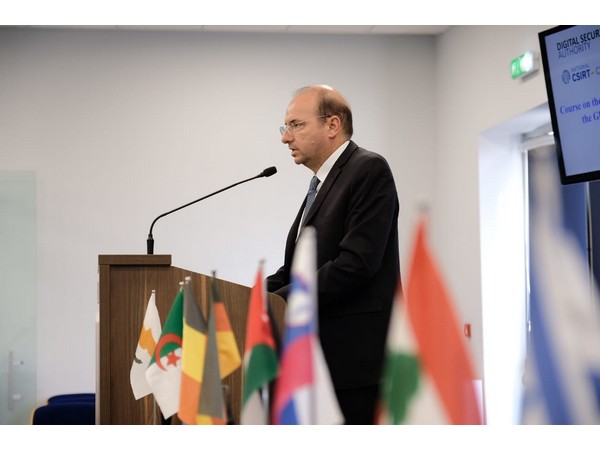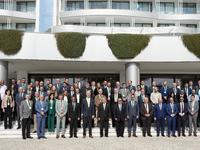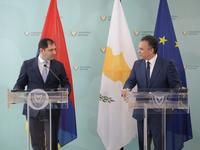Press Releases
27-04-2022 11:10
Address by the Minister of Defence, Mr Charalambos Petrides, at the international course on the “Role of the EU Cyber Ecosystem in the Global Cyber Security Stability”
It is a great pleasure and honor welcoming you to the international course on the “Role of the EU Cyber Ecosystem in the Global Cyber Security Stability”, jointly organized by the Cyprus Security and Defence Academy and the Digital Security Authority of Cyprus within the auspices of the European Security and Defence College for a second consecutive year.
Internet has been a global force for development since the early days of its existence. It has offered opportunities to learn, to reach new markets and to innovate. In a world of growing inequalities, access to internet is key for marginalized communities all over the world to grow, study and connect.
The digital age offers tremendous benefits to billions of people in terms of wealth, knowledge and freedom. As such, the security and stability of the net, as well as the integrity of data flows, is of growing importance to our economies and our societies. By 2030, the number of internet users is expected to reach 5 billion. By then, 80% of the world's population will have mobile connectivity and 60% will enjoy broadband access. Artificial intelligence, big data, cloud computing and the Internet of Things will shape the pace and contours of how we live, work and consume.
Yet in recent times we are all increasingly aware of the threats associated with the web: cyber attacks have too often made the news; our defence systems cannot ignore the possibility of cyber warfare; and too many of our young people have been exposed to the online propaganda of terrorist groups and disinformation for achieving political ends. Cyberspace is a global commodity, and we all share an interest in keeping it safe and secure.
Maintaining the freedom of cyberspace is becoming increasingly critical for the protection and promotion of human rights throughout the world. However, technology also creates new vulnerabilities, including opportunities for terrorist groups and traffickers of arms, drugs and human beings, as well as for public and private actors to engage in counterfeiting and financial and economic crime.
The nature of conflict has changed throughout history. Today, cyberspace has emerged as the latest front, as the newest advances in digital technology not only bring enormous benefits for humankind, but can also be weaponized. Globalization empowers individuals – for good or ill.
We don’t get to choose the kind of times we live in. But we can choose to try and shape our times.
I am convinced that cyberspace can be at the same time safe and open, and that the opportunities of global connectivity outnumber its dangers by far. If we want to preserve and expand these opportunities, we must also invest in security and governance for a free and secure global internet.
You will remember that just six years ago the European Unions’ Global Strategy for foreign and security policy was published. It was a very different world indeed, yet what has been written in the Strategy is as true today as it was then.
It described a world that was becoming more complex, more conflictual, and more unequal, and that the only way to change our world for the better was to work towards a more cooperative world order, and to do so together - together as Europeans and together with our partners around the world.
With our Global Strategy, the European Union has committed to engaging in cyber diplomacy and to seeking international agreements on responsible behavior in cyberspace, based on existing international law. A global framework on cyber security is an integral part of our efforts to build stronger global governance, and a more cooperative world order. International cooperation was set to be the main path to 'promote a free and secure global internet'. The follow up to the EUs Global Strategy, the Strategic Compass which we adopted a month ago,paves the way for building a more resilient EU for addressing emerging threats such as those that derive from the cyber domain. As the EU embarks on developing the Cyber Diplomatic Toolbox and setting up an EU Cyber Defence Policy, todays training course aims to contribute to this discussion.
Bearing in mind the limited resources, both in terms of financial and human resources, our goal must be to complement each other's efforts for a free and secure global internet, avoiding unnecessary duplication. We need a genuine partnership focused on tackling the challenges of the digital age while unleashing its potential.
The effort has to be collective and inclusive, thus we took the initiative to take the lead for our region, bringing together in this course, presenting the EU Cyber Security Eco System, best practices and the opportunities for joint efforts to participants from the relevant EU institutions, EU member states, and from our partner states from the Middle East and North Africa area.
I would like to welcome the interest showed and the participation of representatives from Middle East, North Africa and Gulf countries. It is important to share information, exchange best practices, explore ways of cooperation and cross fertilize training and education opportunities.
At this point I would like to thank the European Security and Defence College and the Digital Security Authority of Cyprus, the distinguished speakers, and all the organizing staff for their support to this important event bringing all this knowledge across the EU here in Cyprus.
Last but not least I would like to thank all 52 participants, physically and virtually, present from 11 states (Algeria, Belgium, Czech Republic, Cyprus, Israel, Jordan, Germany, Lebanon, Slovakia, Portugal, Qatar) and EU bodies and their sending institutions for their interest to join efforts with us.
I would like to wish you a pleasant and fruitful training and stay in Cyprus.
Thank you very much.
(MG/SCH)
Relevant Press Releases
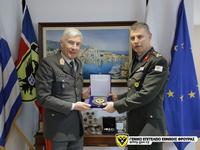
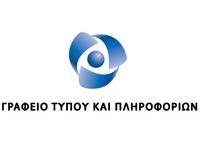
19-04-2024 16:42
PIO e-mail Αlerts service is suspended

08-01-2024 10:41
Curriculum vitae of the new Minister of Defence, Mr Vasilis Palmas
